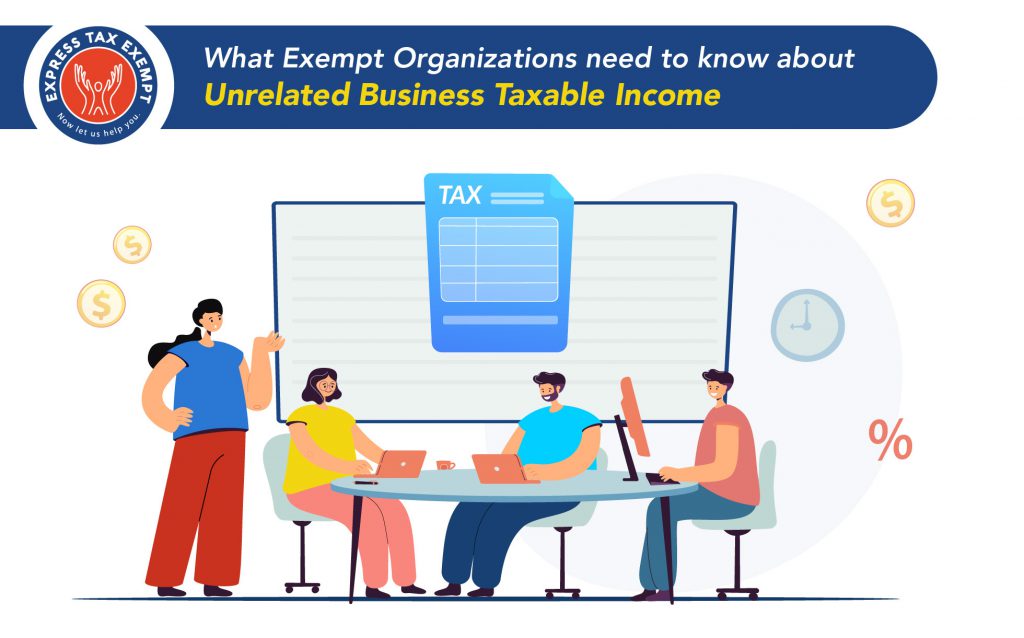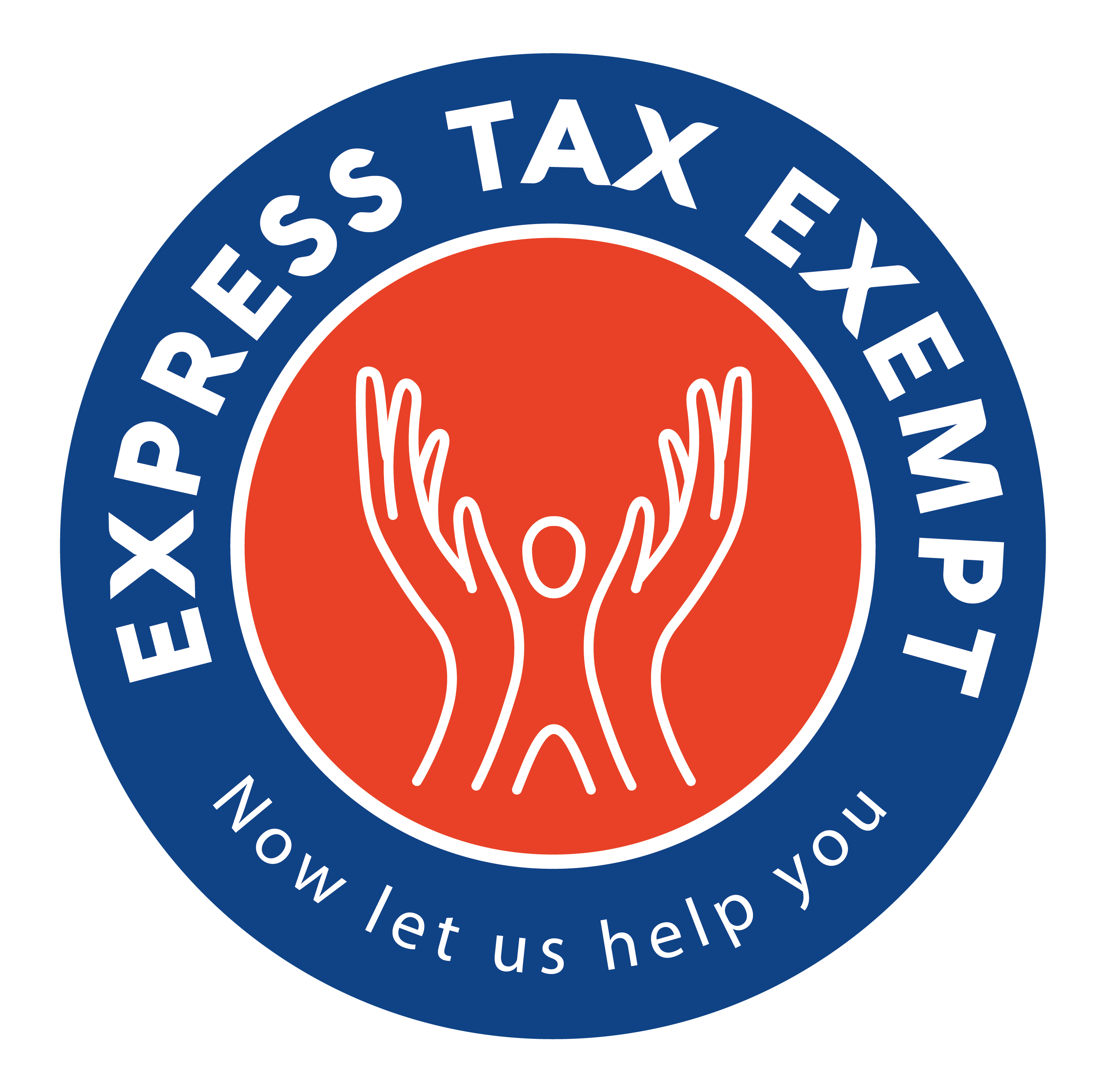An Overview of Unrelated Business Taxable Income

Many people mistakenly assume that when an organization receives tax-exempt status, they are exempt from ALL taxes. This however isn’t always the case. Oftentimes, in order to raise additional funds for their organization, non-profits will sell items or services that aren’t inherently related to the causes that they support. In such cases, these organizations would then be subject to tax on their unrelated business income.
We know all of these different rules and regulations for non-profits can become overwhelming. But, ExpressTaxExempt is here to ensure your organization keeps its tax-exempt status and remains IRS-compliant as a non-profit.
Here is everything your nonprofit should know about Unrelated Business Taxable Income:
What is Unrelated Business Income?
The IRS defines unrelated business income as “income from a trade or business, regularly carried on, that is not substantially related to the charitable, educational, or other purpose that is the basis of the organization’s exemption.”
A Breakdown of the Definition
- It is a trade or business
- The IRS defines a trade or business as any activity carried on for the production of income from selling goods or performing services. Generally, the IRS sees it as any endeavor motivated by making a profit; therefore, unrelated business income tax can be applied broadly and could cover many activities done through your exempt organization.
- It is regularly carried on
- To be considered ‘regularly carried on’ and activity must show frequency and continuity. The activity must also be pursued in a manner similar to, comparable commercial activities of tax-exempt organizations.
- It is not substantially related to furthering the exempt purpose of the organization
- The activities that generate the income must contribute importantly to accomplishing the organization’s exempt purposes to be substantially related. If the activities do not, it’s considered unrelated, and any income made can be taxed.
Examples of Unrelated Business Activities
Here are a few examples of activities the IRS has determined to be unrelated trades or businesses based on the definitions previously mentioned:
- Selling Endorsements
- An example of this would be if a scientific organization sold endorsements of laboratory equipment to manufacturers. Endorsing laboratory equipment doesn’t contribute importantly to the accomplishment of any purpose for which exemption is granted to the organization. Accordingly, the sale of endorsements is an unrelated trade or business.
- Insurance Programs
- An organization that acts as a group insurance policyholder for its members and collects a fee for performing administrative services is normally carrying on an unrelated trade or business.
- Membership list sales.
- An exempt educational organization regularly sells membership mailing lists to business firms. This activity doesn’t contribute importantly to the accomplishment of the organization’s exempt purpose and therefore is an unrelated trade or business.
Excluded Trade or Business Activities
The IRS specifically excludes the following activities from the definition of unrelated trade or business.
- Volunteer Labor: Any trade or business is excluded in which substantially all the work is performed for the organization without compensation. Some fundraising activities, such as volunteer operated bake sales, may meet this exception.
- The convenience of Members: Any trade or business is excluded that is carried on by an organization described in section 501(c)(3) or by a governmental college or university primarily for the convenience of its members, students, patients, officers, or employees. A typical example of this is a school cafeteria.
- Selling Donated Merchandise: Any trade or business that sells merchandise that was received as gifts or contributions is excluded. Many thrift shop operations of exempt organizations would meet this exception.
- Bingo: Certain bingo games are not considered an unrelated trades or businesses.
What Should You Do if Your Organization Has UBTI?
An exempt organization that has $1,000 or more of gross income from an unrelated business must file Form 990-T in addition to their Form 990, 990-EZ, or 990-PF.
Using Form 990-T, Exempt Organization Business Income Tax Return (and Proxy Tax Under Section 6033(e)), organizations can report their unrelated business income. When you file Form 990-T, you will need to complete a separate Schedule A to report income and allowable deductions for each separate unrelated trade or business.
Form 990-T must be filed with the IRS electronically. ExpressTaxExempt ensures a quick and accurate e-filing of Form 990-T.
Consequences For Too Much Unrelated Business Income
Non-profit organizations may lose their tax-exempt status if the income they generate from business activities unrelated to their exempt purpose is excessive. Unfortunately, the IRS does not provide a specific amount of unrelated business income as being too large. So, it is important to be cautionary when participating in a number of unrelated business activities.
ExpressTaxExempt
ExpressTaxExempt is the one-stop solution for filing Form 990 series. Thousands of exempt organizations choose our software to e-file their Forms to report unrelated business taxable income easily.
Filing unrelated business income along with the rest of your 990/990-EZ form is quick and easy at ExpressTaxExempt.com.When you e-file your IRS Form 990-T using our direct form entry process you can attach Schedule A for free, receive internal error checks, and invite organization members to review and approve your 990-T Forms.
Exempt organizations can easily fulfill their IRS e-filing requirements with ExpressTaxExempt because they offer a safe, secure, and accurate e-filing experience for all of their clients.
Related Posts
-
 Maintaining Exempt Status with Unrelated Business Income
No Comments | Oct 3, 2017
Maintaining Exempt Status with Unrelated Business Income
No Comments | Oct 3, 2017 -
 Unrelated Business Income Tax
No Comments | Oct 20, 2015
Unrelated Business Income Tax
No Comments | Oct 20, 2015
